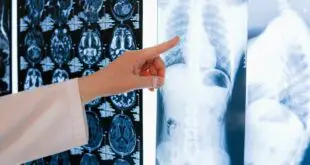How long is human feces dangerous? This is a question you don’t hear often, but believe it or not, many seek answers, especially those with kids around the house.
Feces are a byproduct of the digestive process. It contains a mixture of undigested food, bacteria, and other waste products from the body.
While it may not be the most pleasant topic to discuss, understanding the potential dangers associated with human feces is important for maintaining public health and hygiene. This is why it’s important to know,
How Long Is Human Feces Dangerous?
The duration that human feces remains dangerous varies depending on factors such as the type of pathogens, temperature, humidity, and exposure to sunlight.
Some pathogens will only survive a few hours in human feces, while others may survive for months. It is the presence of pathogens in the feces that makes it dangerous. So, as far as pathogens are present, the feces is dangerous.
Fresh Feces vs. Old Feces
Fresh feces, expelled recently from the body, are generally more hazardous. They contain higher concentrations of active and viable pathogens that can cause diseases.
These pathogens are in a state of metabolic activity and are more likely to survive and thrive when exposed to the right environment.
In contrast, aged feces have undergone a natural decomposition and desiccation over time. During this period, the concentration of viable pathogens gradually decreases, and their virulence diminishes.
However, while aged feces may be less dangerous than fresh ones, they can still harbor dormant pathogens, including bacterial spores and hardy parasites like protozoa, which can remain infectious for extended periods.
How Does Human Feces Transmit Diseases?
Human feces pose a significant health risk due to their potential to transmit diseases. Feces can serve as a reservoir for various pathogens, like bacteria, viruses, and parasites.
If you do not wash your hands properly after using the toilet or coming into contact with feces, you can easily spread pathogens to objects you touch or directly to your mouth.
Contaminated objects can also help in disease transmission. For example, if a person touches a contaminated surface, such as a doorknob or a food preparation area, and then puts their hands to their mouth, they can introduce pathogens into their body.
This is why it is crucial to regularly clean and disinfect commonly touched surfaces to prevent the spread of diseases.
Common Diseases That Human Feces Can Transmit
Human feces can carry a range of pathogens that can cause various diseases if transmitted. We have prepared the below table to show some common diseases that human feces can transmit.
However, you should note that the treatment recommendations may vary depending on the severity of the disease and should be administered under the guidance of a healthcare professional.
| Disease | Causative Pathogen | Common Symptoms | Treatment |
| Diarrhea | Various bacteria (e.g., E. coli, Salmonella, Shigella) | Watery stools, abdominal pain, dehydration | Oral rehydration therapy, antibiotics (if bacterial) |
| Cholera | Vibrio cholerae | Severe diarrhea, dehydration, vomiting | Rehydration with oral rehydration solution, antibiotics |
| Hepatitis A | Hepatitis A virus | Jaundice, fatigue, abdominal pain, nausea | Supportive care, vaccination for prevention |
| Giardiasis | Giardia lamblia | Diarrhea, abdominal cramps, weight loss | Anti-parasitic medications |
| Norovirus Infection | Noroviruses | Vomiting, diarrhea, stomach cramps | Supportive care, rehydration |
| Amoebiasis | Entamoeba histolytica | Bloody diarrhea, abdominal pain | Anti-parasitic medications |
| Rotavirus Infection | Rotaviruses | Severe diarrhea, vomiting | Rehydration, oral rotavirus vaccines (for prevention) |
| Typhoid Fever | Salmonella Typhi | High fever, weakness, gastrointestinal symptoms | Antibiotics, vaccination for prevention |
| Cryptosporidiosis | Cryptosporidium | Diarrhea, abdominal cramps | Rehydration, anti-parasitic medications |
| Polio (Poliomyelitis) | Poliovirus | Paralysis, muscle weakness (in severe cases) | Vaccination for prevention, supportive care |
How Environmental Factors Affect The Viability Of Pathogen Un Human Feces
The survival of these microorganisms is influenced by external conditions, primarily temperature and humidity. Warmer and moist environments tend to support the longevity of pathogens in feces.
In such conditions, many disease-causing microorganisms in feces, such as E. coli, Salmonella, and norovirus, can survive for extended periods.
For example, these pathogens may remain infectious in a warm and humid environment for several days.
This is why fecal contamination can pose a significant health risk in areas with poor sanitation, as the pathogens can survive and potentially infect individuals who come into contact with contaminated surfaces, water, or food.
However, in areas where the temperatures are very high, pathogens may not survive for long. As you already know, high temperature above optimal denatures enzymes (in this case, it can kill the pathogen).
Conversely, in drier and cooler environments, the lifespan of pathogens in feces is typically shorter. Lower temperatures and reduced humidity levels can hinder the survival and replication of these microorganisms, decreasing the risk of disease transmission.
Importance Of Proper Hygiene In Preventing the Spread Of Fecal Diseases
Proper hygiene practices are crucial in preventing the spread of diseases through feces.
Contaminated hands and surfaces can easily transmit harmful pathogens found in feces to the mouth or other body parts, leading to infections and illnesses. To minimize the risk:
- Wash your hands after the toilet – Thoroughly wash your hands with soap and clean water after using the toilet and before eating or preparing food. Scrubbing hands for at least 20 seconds helps remove fecal bacteria.
- Dispose of waste properly – Dispose of human waste in a sanitary manner, following local regulations and guidelines. Avoid open defecation, as it can contaminate the environment and water sources.
- Take caution while changing diapers – When changing diapers for a baby, immediately dispose of the soiled diapers in a lined, covered bin. Then, wash your hands thoroughly afterward.
- Practice food hygiene – Practice good food hygiene by washing fruits and vegetables, cooking meat thoroughly, and avoiding cross-contamination between raw and cooked foods.
What Will Happen When You Eat Human Feces?
Eating human feces, also known as coprophagia, is a highly unhygienic and dangerous practice that can lead to severe health consequences.
In humans, coprophagia is associated with mental retardation, obsessive-compulsive disorder, alcoholism, depression, schizophrenia, fetishes, and delirium.
When you consume human feces, you expose yourself to harmful bacteria, parasites, and viruses that can cause serious infections and diseases.
The digestive system is equipped to handle the breakdown and absorption of nutrients from food but is not designed to process waste materials.
As a result, ingesting feces can disrupt the normal functioning of the digestive system and lead to digestive issues such as diarrhea, abdominal pain, and vomiting.
In addition to the immediate gastrointestinal problems, consuming human feces can also transmit various pathogens to the body.
What Should You Do If A Child Eats Feces?
Discovering that a child has ingested feces can be a distressing situation that requires calmness. Immediately remove the child from the area where they came into contact with the feces to prevent further exposure.
Next, try to determine how much feces the child ingested, as this information can be helpful for healthcare professionals.
You also want to watch the child closely for any signs of illness or distress, such as vomiting, diarrhea, or abdominal pain. If your child shows any of these symptoms, do not hesitate to seek immediate medical attention.
Once the situation has been resolved, take steps to prevent a recurrence. Ensure proper disposal of diapers or feces and childproof areas to prevent unsupervised access.
Children are naturally curious, and such incidents can happen, but a timely and appropriate response, coupled with preventive measures, can help safeguard the child’s health.
Why Does Poop Smell So Bad?
The unpleasant odor of feces results from the complex chemical composition of human waste. When food is digested, it goes through a series of chemical reactions in the intestines, breaking down into various compounds.
One of the main contributors to the foul smell is the presence of sulfur-containing compounds such as hydrogen sulfide. The colonic bacteria in our gut produce these compounds as they break down proteins and other organic matter.
Additionally, indole and skatole, produced when bacteria break down the amino acid tryptophan, contribute to the pungent smell. Combining these compounds creates the distinct odor we associate with feces.
What Is Fecal Transplant
A fecal transplant, also known as fecal microbiota transplantation (FMT), is a medical procedure that involves transferring fecal matter from a healthy donor into the gastrointestinal tract of a recipient.
This procedure treats certain infections caused by Clostridium difficile, which can be difficult to eradicate with traditional antibiotics.
A fecal transplant works by restoring the balance of healthy gut bacteria, which helps fight off the infection and promote overall gut health.
It has successfully treated recurrent C. difficile infections, with cure rates as high as 90%.
Fecal transplant is an important treatment option for patients who have failed to respond to standard antibiotic therapy and can significantly improve their quality of life.
Conclusion
Human feces’ dangerous duration depends on factors like temperature, humidity, and exposure.
Generally, fresh feces contain harmful bacteria and viruses that can risk human health. However, with proper sanitation and hygiene practices, the risk of transmission can be minimized.
 Being Human
Being Human





